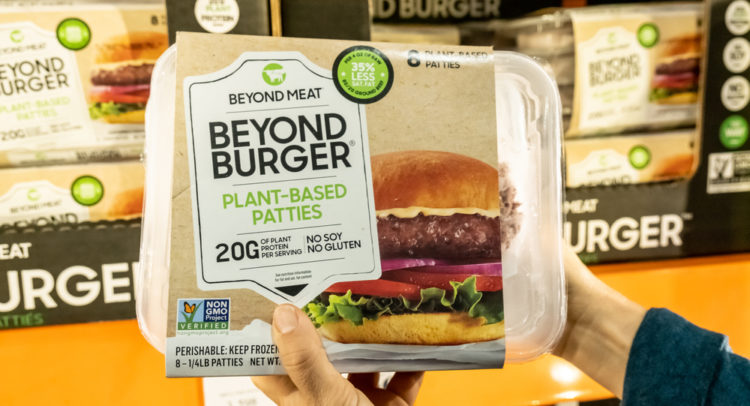Beyond Meat (BYND) produces plant-based meat substitutes. The company sells its products in more than 80 countries. It is expanding internationally, but the U.S. remains its largest market by sales.
Let’s take a look at Beyond Meat’s latest financial performance and risk factors.
Beyond Meat’s Q2 Financial Results and Q3 Guidance
The company reported second-quarter net revenue of $149.4 million, representing an increase of 31.8% year-over-year and exceeding the consensus estimate of $142.62 million.
On the negative side, a loss per share of $0.31 widened from the loss per share of $0.16 a year ago and came in above the consensus-estimated loss per share of $0.23. Markedly, Beyond Meat ended the quarter with $1 billion in cash and $1.1 billion in debt. (See Beyond Meat stock charts on TipRanks).
For Q3, the company anticipates net revenue in the range of $120 million – $140 million, suggesting growth of 27% – 48% year-over-year. Beyond Meat noted that its guidance is subject to certain risks, including uncertainty due to the COVID-19 pandemic.
Beyond Meat’s Risk Factors
The new TipRanks Risk Factors tool shows 74 risk factors for Beyond Meat. Since filing its full-year 2020 annual report, the company has amended its risk profile to introduce nine risk factors.
A newly added risk under the Finance and Corporate category tells investors that the terms of convertible notes that Beyond Meat issued may discourage a third party from acquiring the company. The company cautions that it could cause it to lose out on a beneficial takeover.
Under the Macro and Political category, Beyond Meat has added a new risk factor that cautions investors about the adverse effects of the COVID-19 pandemic on the company’s international expansion plans and access to capital. The company said that it may be subject to pandemic restrictions that could delay the start of operations at some of its newly set up international facilities. That, in turn, could impede its anticipated growth. Furthermore, the company states that the pandemic has disrupted the credit and financial markets significantly, and therefore, it may be unable to obtain additional capital on favorable terms.
Finance and Corporate is Beyond Meat’s top risk category, accounting for 32% of the total risks. That is below the sector average at 34%. Beyond Meat’s shares have declined about 5% since the beginning of 2021.

Analysts’ Take
Following Beyond Meat’s Q2 report, Piper Sandler analyst Michael Lavery reaffirmed a Hold rating on BYND stock with a price target of $120. Lavery’s price target suggests 1% upside potential.
The analyst noted that Beyond Meat is reinvesting profits to drive future revenue growth, which is weighing on near-term earnings.
Consensus among analysts is a Hold based on 1 Buy, 5 Holds, and 1 Sell. The average Beyond Meat price target of $117.80 implies that shares are fully valued at current levels.

Related News:
What Do McAfee’s Earnings and Risk Factors Reveal?
Broadridge Financial Solutions’ Earnings and Risk Factors
CareMax Delivers Mixed Q2 Results
Questions or Comments about the article? Write to editor@tipranks.com
















